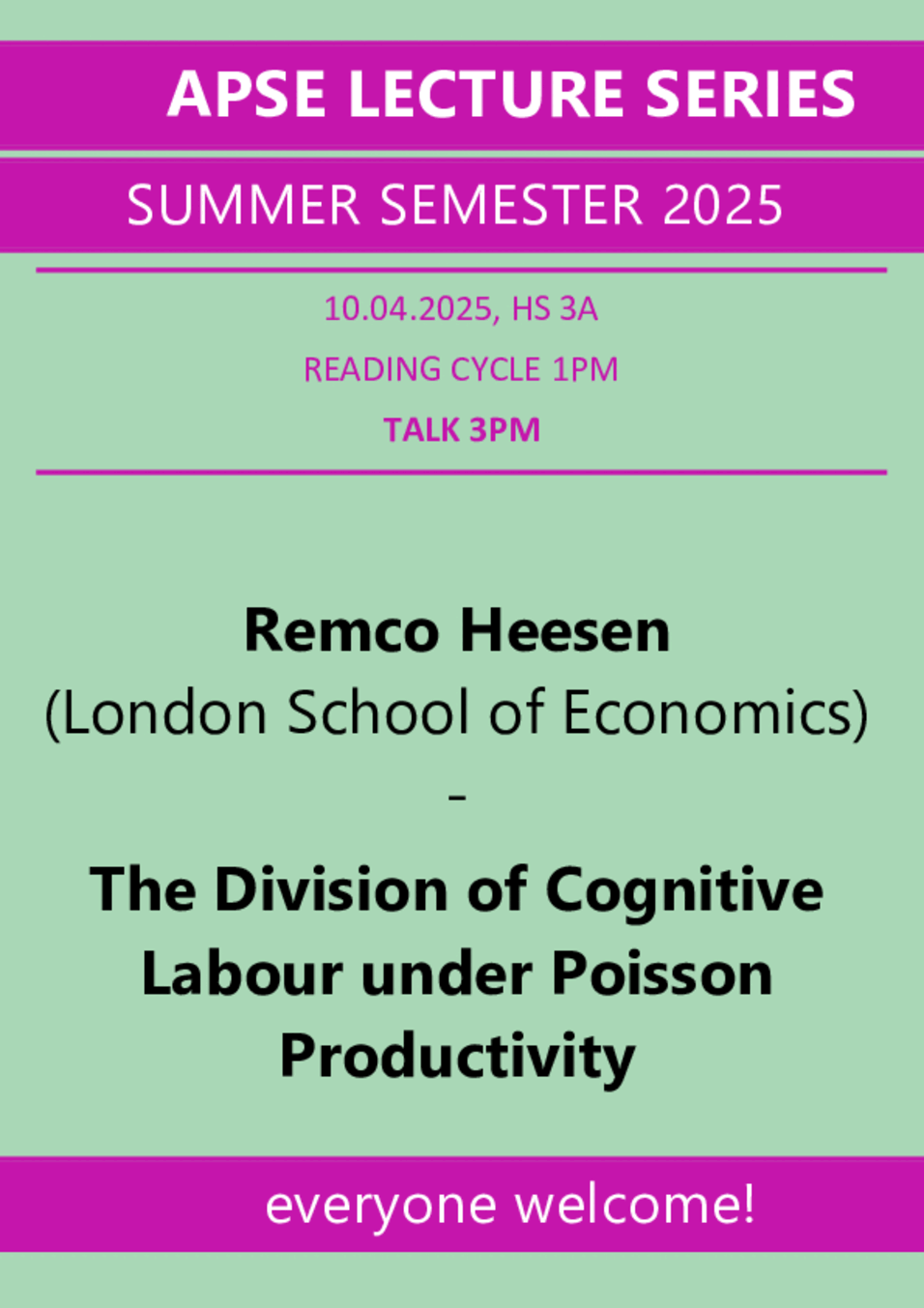Abstract
When a community of academics faces a research problem and multiple methodological approaches to solving it, how much effort should they devote to each approach to maximise their chances of solving the problem and minimise the time to a solution? This problem is known as the division of cognitive labour (DCL). More specifically, Philip Kitcher, Michael Strevens, and Kevin Zollman have asked whether and to what extent academics' expectations of credit for solving the problem can act as an invisible hand to produce an efficient DCL without a need for top-down planning. Here I revisit this question using a modelling framework (key ingredient: academic productivity follows a Poisson distribution) that has more empirical support than Kitcher's, Strevens', and Zollman's, and is also more flexible in that it can be used to address broader questions about credit incentives. The somewhat surprising finding is that in this framework the DCL problem becomes essentially trivial. I'd like to discuss implications for how we think about the model and/or the DCL problem.
Accompanying Reading Cycle
In addition to the APSE talk by Remco Heesen, we want to kindly invite you to our accompanying Reading Circle. It will take place right before the talk in the same room, so:
Time: Thursday, 10.04.2025, 1-3 pm
Location: 3A
Please send a quick message to vinzenz.fischer@univie.ac.at if you are planning to attend the Reading Cycle!
Feel free to bring your lunch!

